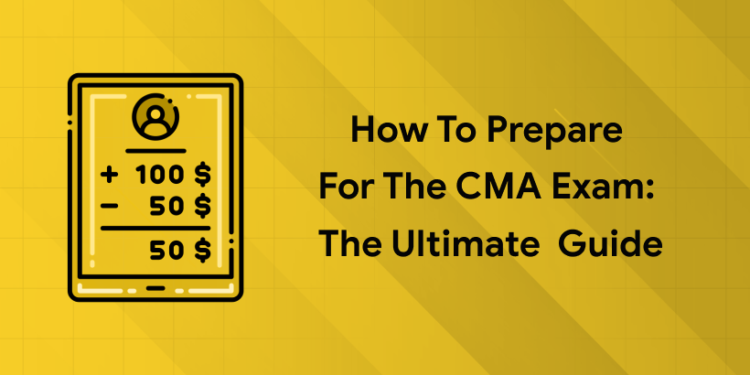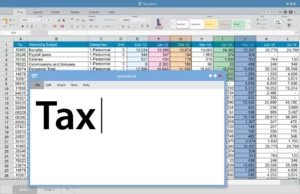Table of Contents
Key Takeaways:
- Plan your study schedule realistically: Dedicate consistent weekly hours based on your work and life commitments. Successful candidates typically study 8-10 hours weekly over 6-8 months or intensively for shorter periods.
- Choose a comprehensive review course: Look for courses that provide textbooks, video lectures, practice questions, mock exams, and coaching support aligned with the 2026 CMA syllabus updates.
- Use effective study techniques: Methods like SQ3R (Survey, Question, Read, Recite, Review) and active recall boost comprehension and retention.
- Practice under exam conditions: Regular timed mock tests reduce anxiety, build speed, and help identify weak areas to refine before the exam.
- Create an ideal study environment: A distraction-free, organized space enhances focus and productivity, essential for long study sessions.
- Supplement your CMA prep: Entri’s ACCA, Practical Accounting, and PwC Strategic Accounting courses offer foundational knowledge and practical skills to complement your studies.
Introduction
Becoming a Certified Management Accountant (CMA) is a prestigious accomplishment that opens doors to leadership roles in finance and accounting worldwide. However, the journey to certification can be daunting without a clear study plan and smart preparation strategies. Whether you’re just starting your CMA journey or planning to retake the exam, understanding how to prepare effectively in 2026 is the first step toward success.
This guide breaks down everything you need to know, from devising a practical study schedule to selecting the best resources, mastering study techniques, managing your time with work or family, and finally, getting exam-ready with practice and mental preparation. By following this step-by-step roadmap, you’ll position yourself to pass the CMA exam confidently on your first attempt.
Your Ultimate CMA Study Schedule
A well-planned study schedule tailored to your needs is the foundation of success in the CMA exam. This section helps you understand how much study time to allocate and how to organize it effectively.
| Weekly Study Hours | Time to Complete Both Parts | Suggested Strategy |
|---|---|---|
| 8-10 hours | 6-8 months | Regular study sessions + review + practice + coaching |
| 15-20 hours | 3-4 months | Intensive study + mock tests + peer study groups |
| 25+ hours | 1.5-2 months | Full-time focus + daily practice + expert tutoring |
How to Build Your Schedule
Building an effective study schedule is the foundation of passing the CMA exam. A well-structured plan ensures you cover all exam topics without last-minute stress. Here’s how to construct a schedule tailored to your needs:
-
Assess Your Starting Point: Begin by evaluating your current knowledge level. Take a diagnostic test or review the syllabus to identify areas of strength and weakness. This will help you prioritize topics that need more attention.
-
Determine Your Weekly Study Hours: Based on your work, family, and personal commitments, decide how many hours per week you can realistically dedicate. Typical successful candidates study between 8 to 25 hours weekly.
-
Divide the Syllabus into Manageable Topics: The CMA exam is divided into two parts with multiple study units. Break the syllabus into modules, and assign each to specific weeks to balance the workload.
-
Make Study Sessions Consistent and Focused: Block out regular study times throughout the week, ideally during your peak focus periods. Sessions lasting between 1 to 3 hours with short breaks work best for retention.
-
Build in Time for Revision and Practice Tests: Every few weeks, allocate time for revision and practice exams. This reinforces learning and increases confidence.
-
Stay Flexible: Life happens—be ready to adjust your schedule but ensure you compensate for missed sessions to stay on track.
Also read: USA CMA – Syllabus, Duration, Eligibility, Fees
Start Your CMA Journey Today
Kickstart your CMA preparation with expert mentorship, structured learning, and a clear roadmap from basics to exam readiness.
Know MoreSample Weekly Plan for 8-10 Hours Study
| Day | Study Focus | Duration | Notes |
|---|---|---|---|
| Monday | Financial Reporting (Ch 1-3) | 1.5 hrs | Read + take notes |
| Wednesday | Cost Management (Ch 4-6) | 1.5 hrs | Practice MCQs |
| Friday | Internal Controls & Analytics | 1.5 hrs | Video tutorial + summary notes |
| Saturday | Practice Test & Review | 3 hrs | Timed MCQ + essays simulation |
| Sunday | Break / Light revision | 1 hr | Flashcards and formula review |
Choose a Quality CMA Review Course
-
Enroll in a course that offers comprehensive coverage of the syllabus, including textbooks, video lectures, practice questions, and mock exams.
-
The best courses integrate coaching support and personalized study plans to keep you on track.
-
Examples include Entri’s CMA review support, Becker CMA Prep, and resources by the Institute of Management Accountants (IMA).
-
Utilize online forums and peer support groups for motivation and discussion.
Apply Proven Study Techniques: The SQ3R Method
Using effective study techniques greatly improves comprehension and recall. The SQ3R (Survey, Question, Read, Recite, Review) method is particularly useful for CMA exam study:
-
Survey: Skim through chapter headings, summaries, and diagrams before reading in detail. This primes your brain for what to expect and builds a mental map.
-
Question: Formulate questions based on your survey, e.g., “What are the key internal control frameworks?” or “How do I calculate cost of capital?” These questions guide your reading with purpose.
-
Read: Engage actively with the material, highlighting important facts, taking marginal notes, and linking concepts.
-
Recite: After each section, close your book and try to recall the main points and formulas aloud or by writing them down.
-
Review: Periodically revisit notes and concepts to reinforce memory and evaluate understanding continually.
This technique turns passive reading into an active learning process, enhancing understanding and helping you retain more information for longer.
Start Your CMA Journey Today
Kickstart your CMA preparation with expert mentorship, structured learning, and a clear roadmap from basics to exam readiness.
Know MoreTake Practice Tests and Simulate Exam Conditions
Practice testing reinforces knowledge, improves exam speed, and builds confidence. Here’s how to get the most from your practice exams:
-
Simulate Real Exam Conditions: Take full-length mock exams strictly timed, mimicking actual exam settings with minimal distractions.
-
Practice Both MCQs and Essays: CMA exams test both multiple-choice and essay-writing skills. Allocate equal time to practice problem-solving and written communication.
-
Analyze Your Performance: Carefully review mistakes and identify recurring weak areas. Tailor subsequent study sessions to close these gaps.
-
Use Reputable Test Banks: Utilize mock exams and question banks from trusted providers like Entri, Becker, or IMA for quality preparation.
-
Consistency Is Key: Build regular test sessions into your schedule, increasing frequency as your exam date approaches.
Frequent testing reduces anxiety, highlights knowledge gaps early, and ensures that you’re exam-ready well ahead of your CMA test day.
You might also like: CMA USA vs CMA India: Which Certification Should You Choose?
Create a Conducive Study Environment
-
Choose a quiet, clutter-free space dedicated to study.
-
Limit distractions by silencing phones and using website blockers for social media.
-
Organize study materials and keep all necessary resources within reach.
-
Practice relaxation techniques to stay stress-free and focused.
Achieve your dream of becoming a USA CMA now with Entri!
Entri’s CMA USA Course: Structured Success for Aspiring Management Accountants
For those aiming to build a global career in management accounting, Entri offers a comprehensive CMA USA course in collaboration with Zivet. The program is designed to meet the highest standards in professional education, balancing theoretical knowledge and practical skills that empower candidates for success in the global finance world.
Course Highlights
The CMA USA course by Entri features 400 hours of flexible online learning, combining live and recorded classes to accommodate a range of schedules. Learners benefit from expert mentorship, live doubt-clearing sessions, and AI-integrated study methods, enhancing the overall experience and comprehension.
- Comprehensive Curriculum: Covers cost management, financial analysis, strategic planning, performance management, risk management, and more, mapped closely to the dual-part CMA exam structure.
- Skill-Building: Students gain hands-on expertise in budgeting, financial forecasting, corporate finance, data analysis (including Excel and ERP tools), leadership, and professional ethics.
- Outcome-Focused: The course prepares graduates for roles such as management accountant, cost accountant, finance controller, treasurer, and CFO.
Conclusion
Preparing thoroughly for the CMA exam requires dedication, smart planning, and consistent effort. Building a realistic study schedule tailored to your lifestyle, choosing the right review resources, and applying effective study techniques can dramatically improve your chances of passing on the first try. Supplementing your preparation with Entri’s well-designed accounting courses such as ACCA, Practical Accounting, and PwC Strategic Accounting equips you with real-world skills and a strong theoretical base, enhancing both your exam performance and career prospects.
Start your CMA journey with confidence—explore Entri’s courses today and take a decisive step toward achieving your certification and professional goals!
Start Your CMA Journey Today
Kickstart your CMA preparation with expert mentorship, structured learning, and a clear roadmap from basics to exam readiness.
Know MoreFrequently Asked Questions
How many hours per week should I study for the CMA exam?
Experts recommend 8-10 hours per week for 6-8 months. Intensive schedules of 15-20 hours weekly are also effective if you plan a shorter prep time.
Can I study both CMA parts simultaneously?
Yes, but focusing on one part at a time is generally more effective for mastering material.
What should I look for in a CMA review course?
Comprehensive study content including updated textbooks, video tutorials, large question banks, timed practice tests, personalized coaching, and guided study plans.
How important are practice exams?
Crucial—they simulate real exam distraction-free environments, improve time management and confidence, and highlight gaps needing more review.
How can Entri’s accounting courses support my CMA preparation?
Entri’s courses in ACCA, Practical Accounting, and PwC Strategic Accounting provide complementary knowledge, practical accounting skills, and industry recognition that reinforces CMA exam concepts.
How do I manage studying while working full-time?
Build short, consistent study sessions into your daily routine; use weekends for longer reviews; and tailor your study schedule flexibly to accommodate your workload.
What is the best way to retain what I study?
Use proven study techniques like SQ3R, mix reading with active recall, apply spaced repetition, and regularly practice exam-style questions.
















